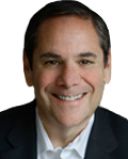
I failed. I allowed myself to put back the weight I so arduously worked off several years ago. I can stand behind the excuse of an auto accident and hand surgery in the last 16 months-but at the end of the day, no one forced my mouth open and shoved food in. I never met a pretzel I didn't like (unless is was one of those salt-free oat pretzels that taste like cardboard).I blew it and I am standing on the precipice of two choices-anger or depression. I might allow myself to wallow in a little self-pity for a moment or two, but at the end of the day-anger works best for me. I am not a little ticked off at my lack of discipline and my ability to self-monitor my behavior: I am raging mad. While I stoke the fires of rage, I know, somewhere close by is a gentle voice that tells me it's ok and I just need to start again, step by step, meal by meal and day by day, until I recapture the momentum needed to bring me back to equilibrium in body, mind and spirit.
Why am I confessing this to you now? After all, I can safely sit in my perch as advisor, author, parent and observer above the fray and report my observations and experiences without placing myself in the midst of the mud, offering advice and telling stories of the battles others fight. I am not above the mud, but firmly stuck in it or at least reaching for the nearest hose to begin to extricate myself from it, once again. I suppose it is a testament to our divine humanness. Our ability to fail and try again, our ability to look to others who have come from the depths of suffering to survive and thrive-does the name Viktor Frankl ring a bell? Whether change comes from inspiration, realization or desperation is not the issue; it is the desire, will and energy put behind the goal and I can promise you it is rarely a straight line.
My exercise routine, shattered by months in physical therapy, has resumed and I fight constantly with my internal voice to take it slow and not over do it. I rarely win these battles as I seem to have come to terms with the fact that I am hardwired with an on/off switch without a moderating volume control. I would send it back to the factory for rewiring, but alas, it's too late. I know my personality and the level of energy I need to get from here to there and right now, moderation doesn't fit. Am I frustrated? Hell yeah! But I just need to remind myself that it takes time and acknowledge that the weight didn't suddenly appear on my torso without a protracted period of self-indulgence. I am back with my trainer, Jason, mixing up my routine between cardio and core/strength training four to five days instead of six or seven, allowing some time for my body to recover. I am monitoring my eating through an iPad application called Sparkpeople; assiduously recording my food intake and my exercise. I have no doubt that I will succeed-again.
You might be wondering why I am writing about my failures and weight-loss battle in a column dedicated to Financial Focus and Behavior Economics. The tie-in is clear, some of us battle weight and others battle financial health. Some of you might be recovering from the holidays with bloated credit card statements and empty bank accounts; you have the choice in dealing with this crisis; you can set a goal for financial success and then day by day exercise prudent judgment to eliminate debt and accumulate wealth or continue to struggle. The temptations are overwhelming and only those who can turn their heads from the onslaught of ads and offers that cross the line from 'wants to needs' can you begin to move away from financial imbalance to a state of satisfying financial equilibrium. Many people have experienced times when the collection companies were calling, when there wasn't enough resources available to cover the bills; financial misery. Remaining in that state is a choice, recovering takes hard work, dedication and a step by step plan. It's rarely a straight line from misery to success; missteps are assured. But it does require a decision, commitment and a game plan. Here are a few suggestions:
1. Create a vision of a healthy financial life and maintain your focus
2. Put the credit cards in the drawer, leave home without it.
3. Create a budget and live within it. Employ programs like Mint.com or First Step Cash Management to help guide you to financial health.
4. Work with a Certified Financial Planner to help guide and advise you.
No one ever promised it would be easy, whether it's physical or financial health-efforts required. In the meantime, there's no better time to begin-today is a new day. Toss the pretzels and focus on a better tomorrow.


